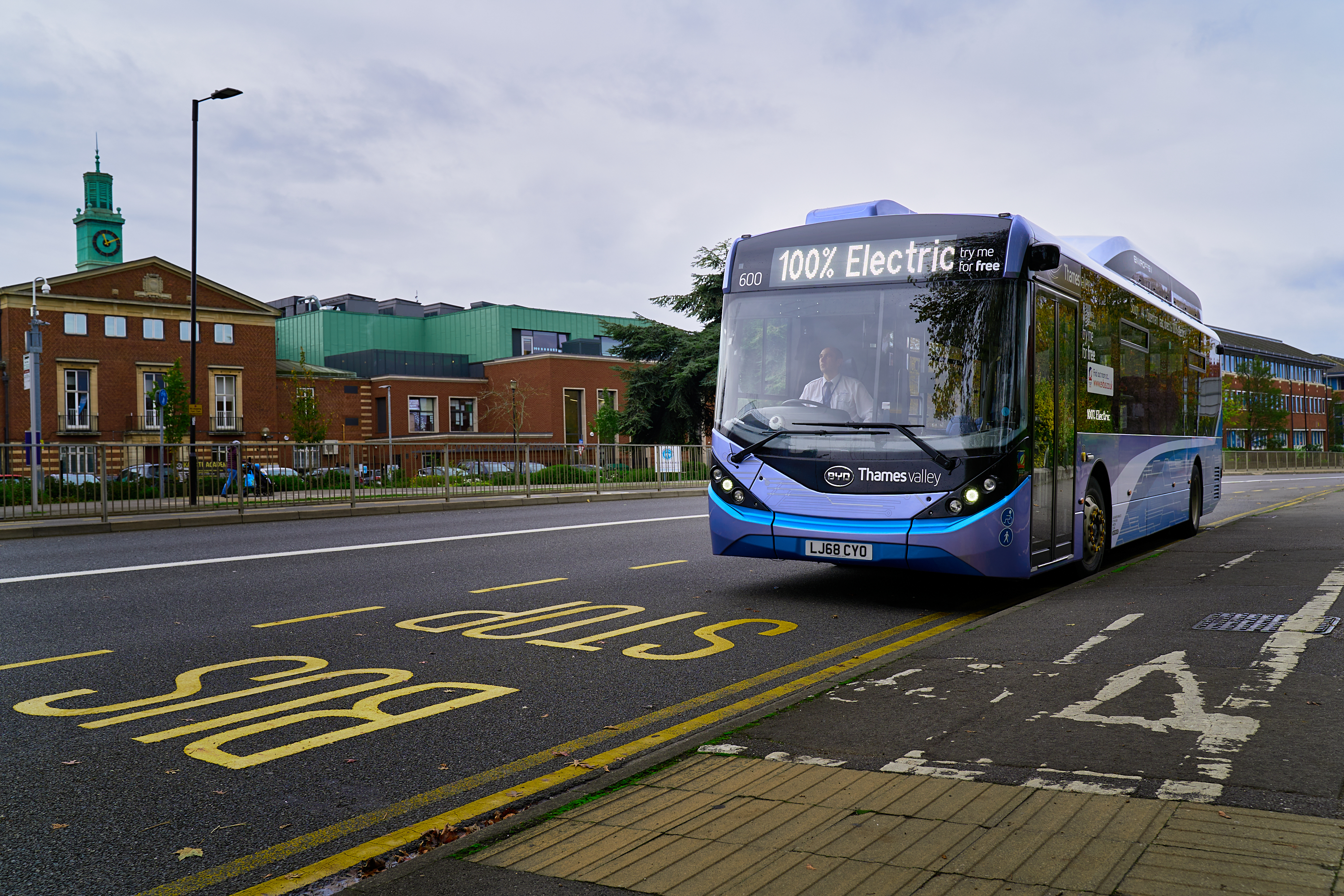June 19 2024
Less than 10% of all transport spending is allocated to the provision of bus services by the current government [1] , but new polling[2] shows more than four in ten (42%) British adults want investment in bus services to be made a top priority by the next government.
More than half of all public transport passenger journeys (58%) are made by bus [3] . Bus commuters add an impressive £64 billion to the economy each year, and a fully loaded double decker bus can also take up to 75 cars off the road, which can ease congestion and improve air quality.
Commenting on the results of recent polling undertaken by YouGov for the Confederation of Passenger Transport, Alison Edwards, Director of Policy & External Relations said:
“Buses are the nation’s most affordable, accessible, and popular form of public transport - carrying over 10 million people a day. But spending is way below what many voters clearly think it should be. Our latest polling shows that people want to see more frequent buses, fares kept low, and more new routes. Among those who want the next government to prioritise spending on bus, those three things also matter significantly more to them than changing who runs the buses. The polling also highlights how, if the next government invests to improve services, many people will use the bus more often.”
The latest polling shows clear support for making investment in buses one of the next Government’s top three transport spending priorities[3] . This support is highest among Labour voters (48%) and households with no access to a car (48%) as well as voters over the age of 65 (46%).
More than half (56%) of those polled who want the next government to prioritise spending on buses consider investment to provide more frequent bus services to be most important.
A similar proportion (54%) want the next government to continue subsidising fares. Among households with no access to a car [5] , more people (59%) would prioritise spending to provide more frequent bus services, but fares (49%) and new routes (41%) are also clear priorities for this group.
Cutting fares for the under 22s is popular: Over two-thirds (68%) of all respondents supported a national fare discount for younger people (under the age of 22). This support was even greater among people intending to vote Labour 79%, and to among 18–24-year-olds themselves (83%).
“Supporting fares for young people is a vital way to ensure access to education and employment. It also helps to seed sustainable transport habits. Like several metro mayors, the Confederation of Passenger Transport believes many more young people will jump on a bus if the next government opts to support a fares offer for the under 22’s across the UK,” adds Alison Edwards.
ENDS
Notes for Editors
15 million frequent bus passengers will make up almost one third of voters at next month’s general election: YouGov found that 32% of the people surveyed use bus frequently [>once per month] and there were 46.6m (UK) or 45.3m (GB) people on the electoral roll at the end of December 2023 (https://www.ons.gov.uk/peoplepopulationandcommunity/elections/electoralregistration/d atasets/electoralstatisticsforuk).
[1] HM Treasury’s annual analysis of public expenditure (https://www.gov.uk/government/statistics/public-expenditure-statistical-analyses-2023) shows that government spending on all forms of transport was £43.6 billion in 2022-23, the last year for which figures are published. Expenditure on buses falls within the category of ‘local public transport,’ a category which also includes expenditure on trams and light rail services as well as some expenditure on walking and cycling. Expenditure on local public transport totalled £4.5 billion in 2022-23 compared with expenditure of £11.1 billion on roads and £25.9 billion on railways. CPT analysis of data from the Department for Transport, Scottish Government and Welsh Government estimates that expenditure on bus alone was around £3 billion in 2022-23.
[2] All polling figures, unless otherwise stated, are from YouGov Plc. Total sample size was 2,111 adults. Fieldwork was undertaken between 10th - 11th June 2024. The survey was carried out online. The figures have been weighted and are representative of all GB adults (aged 18+).
[3] See CPT Bus Facts
[4] Among those polled who believe investment in bus should be one of the next Government’s top three transport spending priorities:
- A clear majority (56%) want more frequent bus services, and among those over 65 in this support rises to 62%.
- A clear majority (54%) want money directed towards keeping fares low. Support for cheaper fares is particularly high among people intending to vote Liberal Democrat (57%) and among people intending to vote Labour (58%).
- Significantly more people polled believe the next government should prioritise investment to provide more frequent buses (56%), to keep fares low (54%) or to create new routes (37%) than think they should prioritise bringing bus services under local authority control (26%).
[5] 18% of those polled CPT’s manifesto for bus Driving Britain Forward was published in January 2024.
This sets out six key priorities including a call for a commitment from the next government to deliver a five year spending plan for buses (as happens in rail) since - regardless of the regulatory model - without a stronger focus on sustained investment it won’t be possible to meet bus passenger priorities (more services going to more places that are also more reliable and more swift). The manifesto also calls for measures to keep fares low when the current national fares cap ends in December.
Earlier this year CPT commissioned research to inform discussion about options for maintaining low fares over the long term. Alternatives to the national fare cap – how can the next government make bus travel more affordable for more people presents the findings of that study which examined the pros and cons of various forms of support including a continued fare cap.
